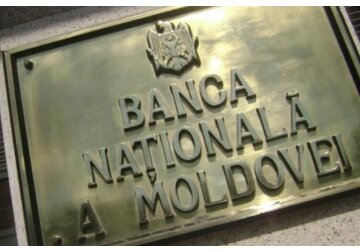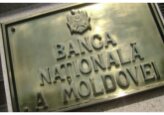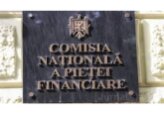
On July 20, a number of amendments to the Law on Currency Regulation and the Law on the NBM will come into force in Moldova.
They are aimed at preventing violations of the rights of customers of foreign exchange offices, improving the discipline of foreign exchange offices operators, ensuring the security of currency exchange operations, and improving the quality of services in the currency exchange market. As InfoMarket previously reported, the approved amendments to the Law on the National Bank and the Law on Foreign Exchange Regulation are aimed at increasing the responsibility and discipline of foreign exchange institutions, ensuring security for foreign exchange, improving the quality of services in this area and guaranteeing the rights of foreign exchange offices clients. According to the draft law, foreign exchange institutions will have to register each cash foreign exchange transaction with individuals at the time of its implementation in the forms of documents established by the National Bank, while registering such transactions should not allow discrepancies between the amount of registered transactions and the balance of working capital, intended for the implementation of cash foreign exchange transactions with individuals, stored in the foreign exchange offices. In accordance with the recommendations of Moneyval (Council of Europe) and in order to comply with legislation in the field of preventing and combating money laundering and terrorist financing, foreign exchange offices will be required to disclose data on shareholders and beneficiaries. In particular, when submitting an application to the NBM for obtaining a license, it will be necessary to indicate, among other data, the names of the participants/shareholders and beneficial owners of the foreign exchange offices, their IDNO/IDNP, as well as the size and share of the authorized capital. Shareholders and beneficial owners will be required to confirm the absence of a criminal record and submit a declaration that foreign exchange office beneficiaries are not in the process of liquidation or insolvency (legal entities) and do not have legal restrictions on the establishment of enterprises or participation in the authorized capital (individuals). It will be necessary to submit certificates of the absence of a criminal record issued by the authorized body of Moldova in the name of the participants/shareholders, beneficial owners of the foreign exchange office, the manager, his/her deputy and the chief accountant, confirming the absence of a criminal record, with attachment, in the case of non-resident participants/shareholders, copies of their certifying the identity of the documents on their registration. In relation to non-residents, similar documents issued by the relevant state confirming the absence of a criminal record must be additionally submitted. The term for the National Bank to make a decision on licensing exchange offices and hotels will increase from 15 to 30 days. The general provisions on the conditions for the activities of foreign exchange institutions will also be supplemented. In addition to existing requirements, foreign exchange offices will be required to install video surveillance systems, as well as maintain and store video recordings of foreign exchange activities for at least 15 calendar days. It is assumed that the foreign exchange offices will provide video recording from cameras in real time, at each window in which foreign exchange is carried out. Recordings from video cameras can be requested by currency control authorities, and during a breakdown or malfunction of the video surveillance system, foreign exchange offices will not be able to work. Warning signs should be installed at each foreign exchange offices' window indicating that video recording is in progress. Some of the provisions of the draft law are of a technical nature, including the notification of foreign exchange procedures for loans and credits, which is necessary for the compilation of statistical data by the NBM. The amendments also stipulate that the decision to impose a fine on the foreign exchange office and the hotel is made by the National Bank within 60 working days from the date of the violation, which is notified to the licensee. According to the NBM, the amendments will come into force 6 months from the date of publication of the Monitorul Oficial, that is, from July 20, with the exception of provisions regarding surveillance systems and video recording of currency exchange activities, which will come into force 9 months from the date of publication. // 31.01.2023 — InfoMarket







